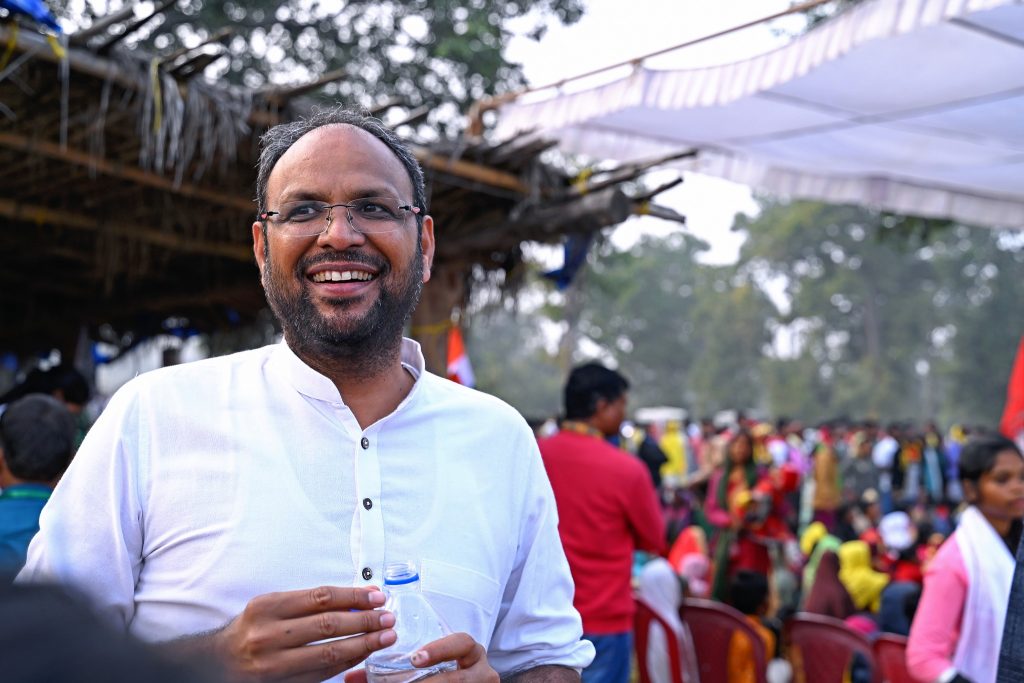Alok Shukla receives the 2024 Goldman Prize for no to mining in Hasdeo Aranya's forests
The Indian activist, 43, started a movement that saved 445,000 acres of forests in Chhattisgarh from the establishment of 21 coal mines. Awarded the 'Green Nobel Prize' for two decades of commitment to biodiversity and the cultural identity of the Adivasi people. A battle that has become 'a model of environmental justice ninth only in India'.
San Francisco (AsiaNews/Agencies) - Alok Shukla, 43 years old, Indian from the state of Chhattisgarh, is the winner for Asia of the 35th edition of the Goldman prize, the highest international recognition which since 1989 has been awarded every year to six "ordinary" people - one per continent - for their activities in defense of the environment.
The winners were announced yesterday in San Francisco, during a ceremony that followed the events for the recently concluded Earth Week. Shukla was recognized for leading a community movement that saved 445,000 acres of the biodiversity-rich Hasdeo Aranya forest in his state from the construction of 21 coal mines.
The de facto cancellation of the project by the Government took place in August 2022. The achievement of this result was possible thanks to the decisive activism carried out for two decades by Alok Shukla in favor of the protection of what is one of the largest areas intact forests of India - known as the lungs of Chhattisgarh.
In 2010, the Indian Ministry of the Environment declared the Hasdeo Aranya forests a "no-go" area, recognizing their unique natural wealth, but without ever formalizing this status. Thus, the governments that have followed one another since then were still able to start mining activities.
Last but not least, the Indian multinational Adani Enterprises received permission to develop five of its own coal mines in the forests between 2010 and 2011.
Alok Shukla is the coordinator of the Chhattisgarh Bachao Andolan (Movement to save Chhattisgarh), an informal alliance of other groups in the state active in the defense of forests. The Goldman Prize winner is also the founder of the Hasdeo Aranya Bachao Sangharsh Samiti (Resistance Committee to Save Hasdeo Aranya).
His activity began when, growing up, he came into contact with the profound environmental and social devastation caused by the extractive industries. “Aware of the unsustainability of resource extraction, he decided to dedicate his life to protecting the water, forests and land of central India and to supporting the Adivasi tribes, who are the traditional custodians of the land,” he said. the Goldman Prize is known.
In the days before receiving the award, Alok Shukla had told the Hindustan Times newspaper: “It was a big surprise. I didn't expect any prize; I was busy with the work of the movement,” adding that the Goldman Prize is recognition for the commitment of the people of Hasdeo.
Speaking instead of when, in June 2011, he visited the forests for the first time, he added: “I had never seen such beauty, such abundance, even a river flowed through it. This forest provided water for irrigation, if this had disappeared, the villagers would have been devastated."
The Hasdeo Aranya forests, among the largest in India, are a fundamental habitat for tigers and 50 Asian elephants. There are many other animal species hosted: among the 25 most threatened are leopards, sloths, gray wolves and striped hyenas, 92 are birds and 167 are rare and medicinal plants.
The state of Chhattisgarh has the third largest concentration of forests in India. The livelihood, cultural identity and nutrition of thousands of adivasis, the name by which indigenous populations are called in India, also depend on these.
At the same time, the area contains one of India's largest coal reserves, a raw material of which the country is the second largest consumer and producer in the world, with 761 million tonnes in 2022-2023 (70% of electricity in the country still comes from coal).
In 2011, Alok Shukla learned about the government's plan to auction off potential forest mining sites. What followed was the realization that the affected communities – first and foremost the Adivasis – were unaware of the details of the initiative, as well as their existing legal rights; Shukla then began advising on potential legal strategies.
Since 2012, the Indian activist has brought together the villages and local communities, with the Save Hasdeo Aranya resistance committee.
The publication of the auctions in 2020 sparked community protest, which gave rise to a 10-day and approximately 270 km protest march to the state capital, Raipur. Until - in the end - the Indian Government backed down.
“Determined to save the lungs of Chhattisgarh from destruction, with its ability to successfully influence politics the Hasdeo movement has become a model of environmental justice in India and has generated unprecedented national and regional solidarity,” comment the promoters of Goldman Prize.
Photo: Goldman Environmental Price







.png)










